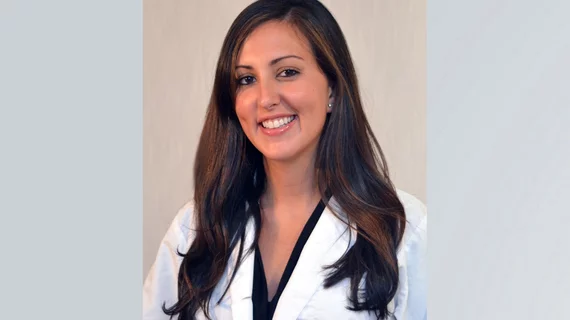Q&A: Cardiologist Fatima Rodriguez on the AHA’s COVID-19 patient data registry
Back in April, as the COVID-19 pandemic continued to spread like wildfire, the American Heart Association (AHA) launched a new patient data registry to learn more about the virus and its associations with cardiovascular disease. Nearly two months later, what kind of progress has the registry made? What do we know today about COVID-19 and how it impacts patients with these common pre-existing conditions?
Fatima Rodriguez, MD, MPH, an assistant professor of cardiovascular medicine at Stanford University School of Medicine and a volunteer working on the AHA registry, spoke to Cardiovascular Business about those topics and much more. Read below for the full story:
I wanted to start by asking you about COVID-19’s impact on cardiovascular care. How has it impacted physicians? What about patients?
COVID-19 is the health crisis of our lifetime and has impacted almost every aspect of cardiovascular care for patients and physicians. Because of the lack of high-quality data across diverse populations, physicians are often making management decisions with uncertainty. As such, the AHA has recognized the pressing need to rapidly collect, analyze, and disseminate high-quality data about the cardiovascular effects of COVID-19.
What do researchers know now about how COVID-19 affects patients with a history of cardiovascular disease?
We know that cardiovascular disease both potentiates and can be a serious complication of COVID-19. Early research suggests that the SARS-COV2 virus may affect every aspect of the cardiovascular system—the coronary arteries, the myocardium, and the electrical system. Patients also seem to be more prone to both venous and arterial thromboembolism, including stroke. However, much of our clinical practice is driven by single-center data and lower-quality observational data.
How can this new COVID-19 data registry make an impact?
The goal of this registry is to capture high-quality and comprehensive data across U.S. hospitals for patients hospitalized with COVID-19. We are collecting detailed demographic data, serial laboratory and testing data, treatments, and cardiovascular outcomes in patients.
We hope that this high-quality observational data will be used to inform hospital-level, regional, and national COVID-19 CVD quality improvement and research.
How can healthcare providers participate and contribute?
We encourage all U.S. hospitals to enroll in the AHA registry. We need to work together to make sure the data we collect are truly representative of the diversity of the U.S. patient population. Participating sites will be able to leverage the registry to track their own experiences and outcomes caring for COVID-19 patients.
In just the first month of data collection, we have seen data from nearly 3,000 unique patients from many of the more than 100 hospitals who have signed up to participate. More information about the registry, including a full list of participating hospitals, can be found online. The list is updated twice a week, as we have been adding hospitals throughout the country.

